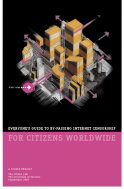Everyone's Guide to By-passing Internet Censorship
| Attachment | Size |
|---|---|
| everyone's-guide-to bypassing internet censorship_english.pdf | 1.52 MB |

Internet censorship, or content filtering, has become a major global problem. Whereas once it was assumed that states could not control Internet communications, according to research by the OpenNet Initiative (http://opennet.net) more than 25 countries now engage in Internet censorship practices.
Those with the most pervasive filtering policies have been found to routinely block access to human rights organizations, news, blogs, and web services that challenge the status quo or are deemed threatening or undesirable. Others block access to single categories of Internet content, or intermittently to specific websites or network services to coincide with strategic events, such as elections or public demonstrations.
Although some states enact Internet filtering legislation, most do so with little or no transparency and public accountability. Most states do not reveal what information is being blocked, and rarely are there review or grievance mechanisms for affected citizens or content publishers. Compounding the problem is the increasing use of commercial filtering software, which is prone to over-blocking due to faulty categorization. Commercial filters block access to categorized lists of websites that are kept secret for proprietary reasons, even for customers. As a consequence, unaccountable private companies determine censorship rules in political environments where there is little public accountability or oversight. For example, commercial filtering software is used to censor the Internet in Burma, Tunisia, Yemen, Saudi Arabia, and Iran.
This guide is meant to introduce non-technical users to Internet censorship circumvention technologies, and help them choose which of them best suits their circumstances and needs.


